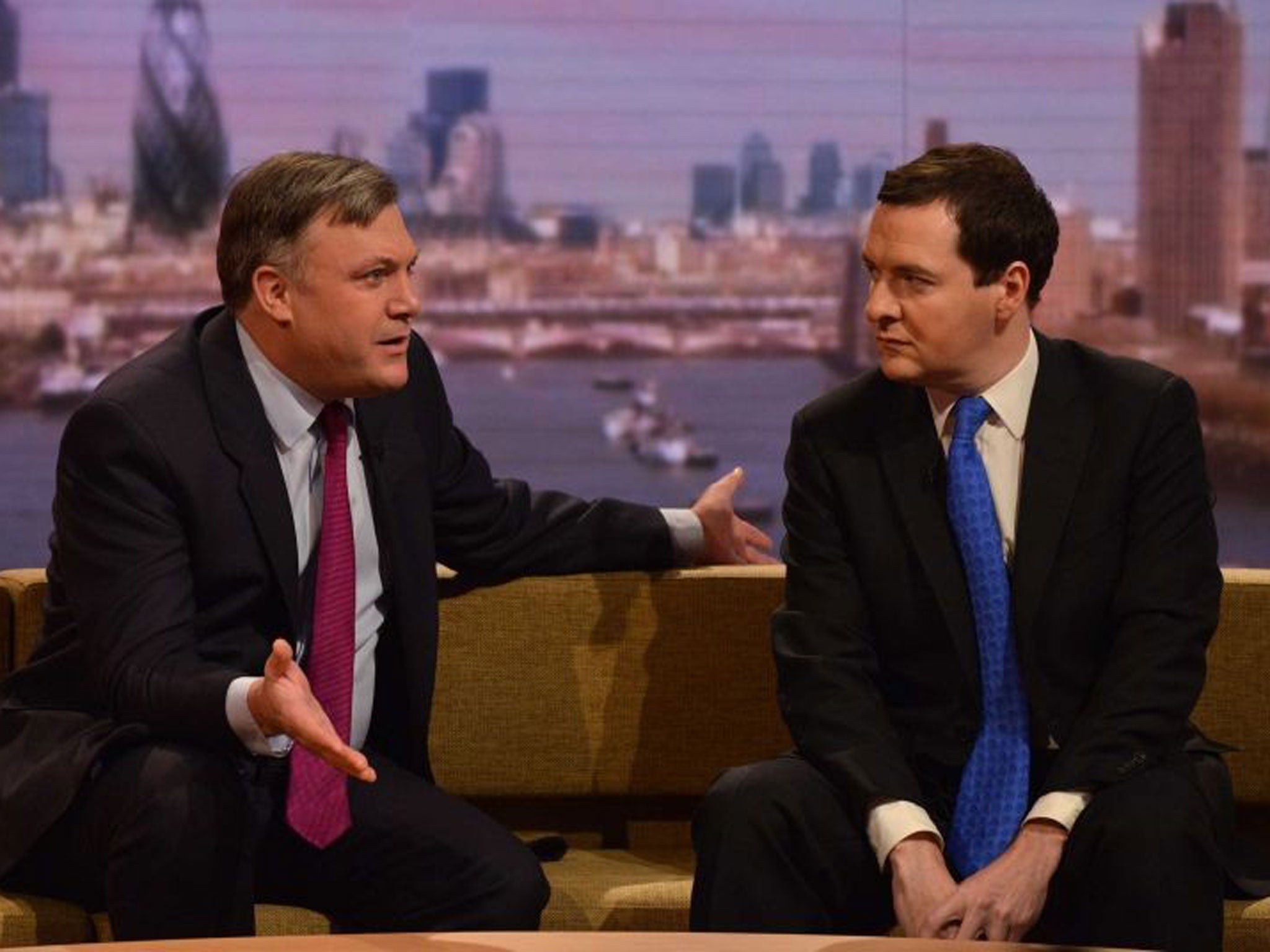If only politicos could pop the odd 'nice' pill
Many politicians cannot resist trying to take chunks out of the other side


We journalists tend to like politicians, while most voters don't. This is a bit of a problem, for political journalists and for politicians. It is a sharp difference that came up in a Christmas focus group, known as having a drink with some friends, when one of them said that the two politicians he disliked most were George Osborne and Ed Balls. I had to admit that I found both of them, in person, interesting, persuasive and good company. But I realise that neither of them comes across well in broadcast mode: they seem dogmatic, partisan and humourless; they respond to questions with sound bites and selective facts; and they seem more interested in scoring points in argument than in solving voters' problems.
Last week, an ICM poll found that nearly half of voters chose "angry" as the word that best described how they felt about politics and politicians, while another quarter chose "bored". This was slightly unfair in that the only other choices were "respectful" (16 per cent), "inspired" (2 per cent) or "don't know" (9 per cent). What about "interested", "responsible" or "engaged"?
The poll also found that the thing most likely to put people off voting is that "politicians don't keep promises". Well, of course they sometimes don't, most journalists think. Keeping promises and changing stuff is really hard. And we think that there is a difference between Nick Clegg's promise to vote against the rise in tuition fees and most other promises, which are kept, more or less. We think that Clegg's party should be punished for breaking its promise, but that the Conservatives should be rewarded for, for example, keeping the promise to spend 0.7 per cent of national income on overseas aid. The voters, on the other hand, or 64 per cent of them, think that all politicians break promises and are an undifferentiated mass of dishonesty, evasion and unreliability.
But why is it that politicians are unable to overcome their unpopularity? The mistrust of politicians is not a new thing. We may be passing through a negative phase, in that all the traditional national parties are regarded unfavourably. Even the third most popular party, Ukip, which has sprung up to provide a receptacle for this negativity, is fiercely disliked by more people than like it.
Is the contempt we feel towards the people we choose to govern us, or whom we allow other people to choose for us because we can't be bothered to vote, inevitable in a representative democracy? Is it, in other words, because we are illogical and think politicians could deliver what we want if they tried, and then get cross with them when they don't? Or is it a problem of the sort of personality that goes into politics?
I think there is more truth in the second explanation than is often thought. A lot of personality traits are drawn into politics. Ambition and an impulse to make a difference are the two most obvious, but there is a third. People also go into politics because they feel strongly that the other lot are wrong and their lot are right. What motivates them to get involved in politics is one of the things that most puts people off: partisanship.
This explains why parties sometimes act against their own interest. The most striking recent example was the Tories' opposition to changing the system to allow voters to put candidates in order of preference. If they had supported that, they could have harvested Ukip voters' second preferences and Clegg would have let them equalise constituency sizes – both of which would have helped the Tories in 2015. But they blocked it simply because the other lot wanted it.
As Peter Kellner, my mentor as political editor of the New Statesman in the 1980s, put it recently: "Imagine that all we ever heard from rival supermarket chains was how awful the others were – how dishonest, how immoral, how they lied about their goods and short-changed their customers. Would we be surprised if the public concluded that none of them could be trusted?" It is a paradox that we tend to feel more positive about commercial advertising than we do about political messages.
The politicians who are successful tend to be the ones who seem less partisan. Margaret Thatcher was the big exception, in exceptional times, but then John Major was a unifier, as was Tony Blair and, less successfully, David Cameron and Nick Clegg. As we survey possible future leaders, the ones that stand out are those who can do Bipartisan Reasonableness. That was Boris Johnson's strong card, before he delivered that foolish Thatcher memorial lecture last month. Chuka Umunna talks about aspiration and enterprise, in a way that sounds most un-Labour; Gloria de Piero asks, in a way that sounds most un-politician: "Why do people hate politicians?"
A big part of the answer is because so many politicians, like Osborne and Balls but unlike her, cannot resist trying to take chunks out of the other side. It's what got them interested in politics in the first place, and they cannot give it up now, even if they can dimly see that it would be in their interest to find a better way.

Join our commenting forum
Join thought-provoking conversations, follow other Independent readers and see their replies